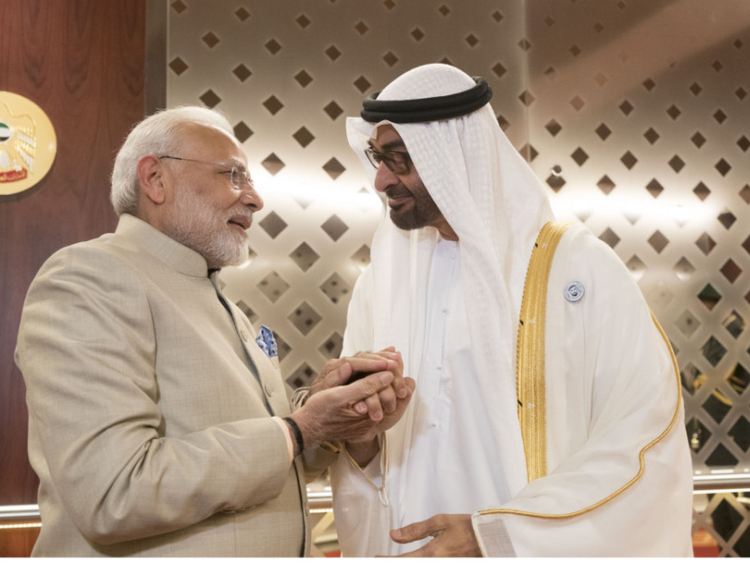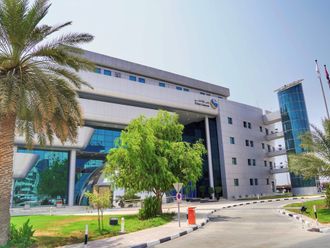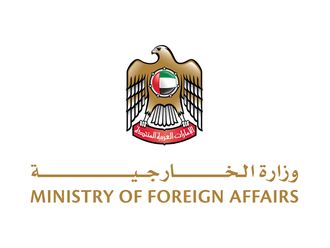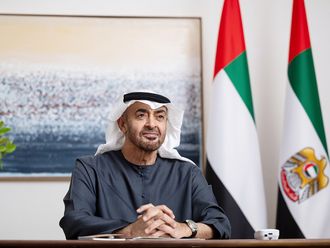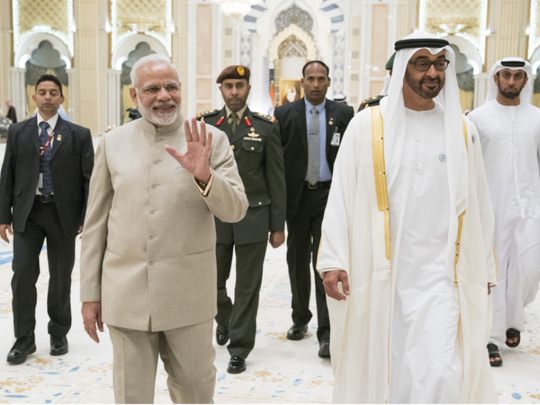
Dubai
Robust security and defence cooperation between the UAE and India have now been formulated in an institutional framework with a renewed emphasis on regional security, cyberspace and sharing of intelligence, defence experts and analysts said on Monday.
UAE and India released a 55-point joint statement on Sunday, at the conclusion of Indian Prime Minister Narendra Modi’s two-day visit to the UAE, key among which were efforts to adopt a holistic approach to combat extremism and growing defence cooperation.
Noting the close cooperation between the security agencies of the UAE and India, His Highness Shaikh Mohammad Bin Zayed Al Nahyan, Abu Dhabi Crown Prince and Deputy Supreme Commander of the UAE Armed Forces, and Modi expressed satisfaction in the joint statement at the institutional mechanism of the security dialogue between the respective National Security Adviser and National Security Council. An MoU on exchange of financial intelligence related to money laundering and terror financing had been finalised and was ready for signing at the earliest, the statement said. The two sides also reviewed their commitment to combat cybercrime, with a MoU signed in February 2016 establishing an institutional mechanism for undertaking joint research.
Recognising that both India and the UAE are multicultural and pluralistic societies, Shaikh Mohammad Bin Zayed and Modi reiterated their common resolve in the joint statement in promoting the values of tolerance, peace, inclusiveness and in countering extremist ideologies. The two leaders agreed that extremism and terrorism cannot be defeated by the use of force only, and acknowledged the need for a holistic approach, which includes disrupting the use of web and social media for promotion of violent ideologies; preventing the use of religious centres to radicalise youth and recruit terrorist cadres; and promoting tolerance.
The leaders welcomed the contributions of initiatives such as the UAE-based Sawab and Hedayah centres to countering extremist ideologies and enhancing ongoing international counter extremism cooperation.
“Cooperation against extremism and terrorism has been a consistent theme at all of the four Indo-UAE summits since 2015. Continued preoccupation in the current statement is partly reflective of the mutation of security situation in South West Asia, where despite dismantling of Daesh and setback to Al Qaida, other avatars have continued to pose serious threat to open, tolerant and multicultural societies such as India and the UAE,” said Sachdev, whose latest book ‘UAE: A Business Manual’ was published last year. “It can be argued that while the threat has morphed, it may have become more nebulous and lethal — requiring greater vigil. The statement, therefore, acknowledged the need for a holistic approach against it,” he said.
The two leaders also deplored efforts by countries to give religious and sectarian colour to political issues, urged all states to control the activities of the so-called “non-state actors” and to cut all support to terrorists operating from their territories against other states. They noted the importance of efforts to dismantle terrorist networks, their financing and movement, in accordance with international laws.
“With such agreements in place, the more invisible forms of financing terror — such as cryptocurrencies — will now come under increasing surveillance along with traditional avenues such as hawala. However, if the capability of physical harm of any terror entity is neutralised, the scope for all ancillary activities such as terror financing on a global scale will also reduce immediately,” said Sahni.
According to Sachdev, the joint statement does provide details of the bilateral strategy to meet the challenge posed by terrorism and extremism. “It mentions specific domains of the bilateral comprehensive strategic cooperation, including defence and security as well as combating human trafficking and usage of funds. This emphasis resurfaces in the statement later with mention of themes such as cooperation in developmental assistance to third world countries — with sub-Saharan Africa and Afghanistan being specified. This seems to indicate an intention to jointly combating the threat of terrorism and extremism at two of its contemporary hotbeds,” he said.
A 2014 framework on defence cooperation was among the core issues mentioned in the joint statement, with both sides noting a growing defence cooperation, including through regular high-level visits, training programmes, joint exercises, participation in defence exhibitions and ship visits and port calls. The UAE and India last year signed an agreement on cooperation in defence manufacturing, and private-public partnerships have already begun: India’s Reliance Defence recently signed an MoU with Strata Manufacturing to explore cooperation in the field of advanced aerospace manufacturing capabilities between India and the UAE, including in production of carbon fibre composite aerostructures as well as 3D printing of aerospace components and airframe panels.
Indian Defence Minister Nirmala Sitharaman said last week that her country was looking at a growing need for investing in technically superior defence equipment manufactured indigenously, an area where the UAE could play a critical role with its investments. The Indian government, in its annual budget presented on February 1, estimated an outlay of $46 billion for defence in 2018-19, including for the armed forces, the Defence Research and Development Organisation (DRDO) and defence production units.
With the UAE committing $75 billion (Dh168.9 billion) towards developing Indian infrastructure, the Abu Dhabi Investment Authority and DP World have recently signed deals worth $1 billion and $3 billion respectively, and Emirates airline has announced an agreement with the southern Indian state of Andhra Pradesh to help develop its aviation sector. Among the other key areas in focus are deepening collaborations on maritime security, including joint anti-piracy, training and exercises.


